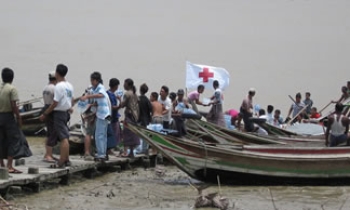CHISINAU (MHM) - On 27 March 2007, as the film crew from ProTV Chisinau focused their cameras on a peaceful opposition party rally in the Moldovan capital, the police moved in.
Members of the crew were arrested and held for questioning along with more than a dozen marchers. While this was happening, a crew from DTV, which was filming the arrests, had the tape removed from their camera.
Both crews were later released without charge and without any paperwork changing hands. They demanded an apology and a full investigation, but they knew they were wasting their time.
Incidents like these have become a common occurrence in the ex-Soviet state where the intimidation of journalists has never been taken seriously and where the police are reluctant to investigate complaints.
Instead, trials of unauthorized meetings and “misbehaving” reporters are arranged rapidly: held on the very next day.
There is also little point in journalists taking legal action; they rarely win cases in the national courts. At the same time, the government keeps losing case after case in the European Court of Human Rights.
Sliding away from democratic standards
The move against the media is not only happening on the streets. Recently, Moldova's legislature decided to stop the mandatory live TV and radio broadcast of the proceedings of parliament in a move that opposition politicians describe as an attempt to control parliamentary reporting. Journalists say the move is a violation of the public’s constitutional right to information.
The decision by legislators to terminate the live broadcast from parliament came shortly after western embassies and international organizations released a joint declaration expressing deep concerns about freedom of the media in Moldova.
The most notable case involved EuroTV Chisinau and the radio station Antena C. Both were sold to people close to the ruling coalition amid claims of procedural irregularities and arbitrary interpretation of law. The two stations are now hardly seen or heard, despite being popular a few months ago for their unbiased reporting on major developments.
Vasile Botnaru, director of the Moldova bureau of Radio Free Europe (RFE/RL), says the developments suggest the Eastern European nation is sliding away from democratic standards.
“ - We are witnessing a degradation of standards as well as attempts by this government to manipulate public opinion and obtain a favorable outcome at the summer elections.”
Mr Botnaru, who runs the local office of an international radio station, says the Moldovan press has never been free or independent.
“ - I can name just a few newspapers and stations capable of surviving on their own; economically speaking, most of them are bankrupt.”









